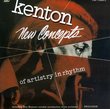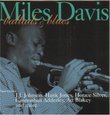| All Artists: Gustav Mahler, David Zinman, Zurich Tonhalle Orchestra Title: Mahler: Symphony No. 1; Blumine [Hybrid SACD] Members Wishing: 0 Total Copies: 0 Label: RCA Original Release Date: 1/1/2007 Re-Release Date: 3/13/2007 Album Type: Hybrid SACD - DSD Genre: Classical Style: Symphonies Number of Discs: 1 SwapaCD Credits: 1 UPC: 828768715628 |
Search - Gustav Mahler, David Zinman, Zurich Tonhalle Orchestra :: Mahler: Symphony No. 1; Blumine [Hybrid SACD]
![Mahler: Symphony No. 1; Blumine [Hybrid SACD]](/images/no_cover/l.png?v=a4e11020) | Gustav Mahler, David Zinman, Zurich Tonhalle Orchestra Mahler: Symphony No. 1; Blumine [Hybrid SACD] Genre: Classical |
CD DetailsSimilarly Requested CDs
|
CD ReviewsAbsolutely Stunning! Edward R. Bognacki | Kearny, NJ United States | 03/14/2007 (5 out of 5 stars) "Let me begin my impressions by saying that I have no musical education. I am simply a person who loves classical music. I will leave the "reviews" to those who know more about music theory and interpretation. I am still baffled by how dots and lines on a piece of paper can become something that can stir my soul. This new recording of the Mahler First by Zinman and the Zurich Tonhalle is simply stunning. The performance moved me to tears and at the same time lifted my heart. The extraordinary playing of the Zurich Tonhalle Orchestra is certainly second to none and the sound engineering is perhaps the best I have ever heard. There is a tranparency to the recording that allows the listener to hear all of the instruments clearly, even in the tutti sections of the score. A number of the fortissimi lifted me out of my seat. The gorgeous tone of the strings (especially in the song-like melody of the fouth movement)touched me deeply. I was very impressed with the clarity and beauty of the winds, the impact of the clarion brass and the overwhelming sound of the percussion section. I can remember listening to Bruno Walter's Columbia Symphony recording many years ago and falling in love with this work. I have heard this symphony many times since, yet listening to Zinman and his orchestra I felt as if I had never heard the Mahler First before - that is how fresh and exciting this performance and recording was for me. So, if you love Mahler, I think you will love this recording. " Absolutely superb! Hannibal | Los Angeles, CA USA | 04/11/2007 (5 out of 5 stars) "In the same way David Zinman thrilled us with his Beethoven collection with the same forces a few years ago, he now begins what we can only hope is a similar transversal of Mahler's symphonies. What a magnificent recording this is! The music is revealed and illuminated as only SACD recordings can - a point amazingly ignored by other reviewers here - even as they praised the superb sound, revealing the orchestration in all its splendor as never before.... Interpretively, Zinman sheds new light on this wonderful work, eschewing exaggerated emphases which in effect "cleans" the piece and permits an almost classical discipline, making one feel one is hearing the work for the first time exactly as Mahler wrote it. Admittedly, those of us accustomed to highly personalized performances such as Bernstein's terrific reading with the Concertgebouw Orchestra, say, may feel that the music here seems occasionally to be on auto-pilot. And it also must be said that there is no denying the Tonhalle strings cannot match the fulsome glory of some more famous bands, - but Zinman's cleansing process and his attention to balances brings rewards of their own. This is a unique and exciting experience. Buy this SACD - no one who loves Mahler should be without it!" Mahler and Zinman....almost great, but not quite DAVID A. FLETCHER | Richmond, Va United States | 07/18/2007 (4 out of 5 stars) "Many critical eyes have been focused on Zinman since his Baltimore days, and now even more so with "his" orchestra, the Tonhalle Zurich. He has been alternately branded a risk-taker, an emotionally flat de-romanticizer, a fresh-look-at-the-score reinventor....you name it. David Zinman can, and has on many occasions, delivered stunning performances of everything from Barber and Ives, to Beethoven. And, in the near-miss category, this new performance of the Mahler First almost rises to that plateau in the rare air occupied by Walter, Bernstein, Solti (no cat-calls now...the old "steamroller" could hammer this one out with the best of them) and a few others that reviewers like to throw sticks and stones over.
First, Zinman gets a lot of things right. Most importantly, he does not hurry. And, given his Beethoven cycle, for that we can be thankful. I was on several occasions surprised and pleased by his flexible tempos. There are just some Mahlerian moments and touches that you don't want to stumble pell mell through. The magical opening, with vapor-thin strings and chirping woodwind birdcalls, has a near ideal pulse. Massed horns give their hoops with the right rhythmic flourish, and all is well. The great "walking theme" has just the right element of jauntiness to make you smile in spite of yourself. The second movement laendler, "Kraeftig bewegt.." might have used a little more pointing, but again, much happens as it should. Low strings sound their open fifths in true marcato fashion, not just swelling into position under the violins. The final accelerando into the reprise has just enough vim to carry the mood to a satisfying conclusion. The third movement mock-funeral tread, often rushed into an anonymous muddle in lesser performances, is here just slow enough to hit that mark where sarcasm and pathos meet. The minor-keyed "Bruder Martin/ Frere Jacques" theme as launched by the bass--and played here as instructed in an almost world-weary fashion, almost a scrape--has the undertone of an oxcart pogrom. The little string/wind "yips," written to be echoes of the Yiddish folk tradition, don't quite make the point as they do with Bernstein. But (and again I'm pleasantly surprised), Zinman goes out of his way to enforce his conductor's rubato options as the big second tune is launched--what some listeners pick out as the "Fiddler on the Roof" prequel. With the addition of the oompah-style klezmerisms, Zinman leaves no doubt that this is no mere gypsy band that Mahler was recalling. The dreamlike tam-tam shimmer that heralds the reprise of the original funeral tempo is nicely caught as well, very bittersweet, and very right. Zinman's "Sturmisch bewegt" Finale is stormy indeed, the opening bars sounding bomb-like, complete with short fuse sizzle. The successive thematic recapitulations that make up so much of this movement never sound labored. Textures manage to thin out when needed, just to spotlight those bits of development that Mahler has saved for last. Zinman drives it all homeward to a rousing conclusion, all the while keeping articulation precise, yet never letting accuracy become the end-all. "Blumine" is featured as a bonus, almost in encore fashion. The dreamlike trumpet solo is nicely balanced against the ensemble, the nocturne-like character of the movement getting the nod. Happily, BMG have set this last, rather than inserting it to recreate the original performance order that Mahler subsequently abandoned. Programmable players can be set to accomodate any listener wishes to the contrary. This is a good a time as any to echo other observations about the recording quality and dynamic range, which is quite good in the former, and extreme in the latter. Bass drum throughout the disc is palpable, brass are crisp without excessive harshness, and winds transparent. My only complaint is an overall lack of heft in the strings, perhaps due to the slightly back-of-hall balance. This thinness of texture is compounded by the same swimming ambience that sometimes gets the better of the engineers for Chandos and Naxos, and it's admittedly a tough thing to get just right. In the plus category, fortissimi register with full impact. Zinman's Mahler dips all the way down to triple-p, and then thunders back to quadruple-f. While never really soaring to standing-O heights, what we have then is a solid second-tier effort, which heard live might generate enough frisson to take it to the top. Lest this sound like so much damning-with-faint-praise, I'll have to admit I'm currently wallowing in the glorious Abbado/Lucerne DVD cycle, with its stunning sonics, and often jaw-dropping musicality. If that team delivers the "Titan" of my dreams, then I'll truly be happy." |







